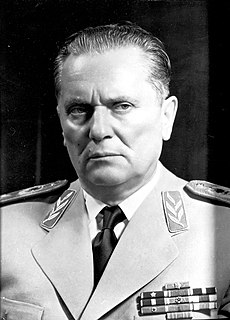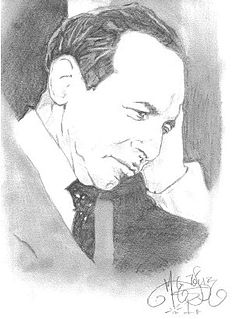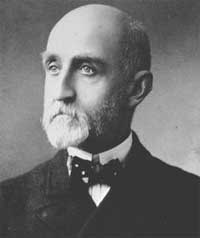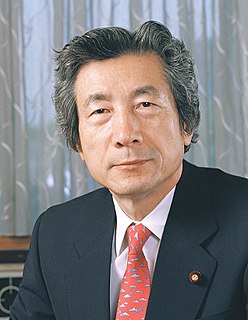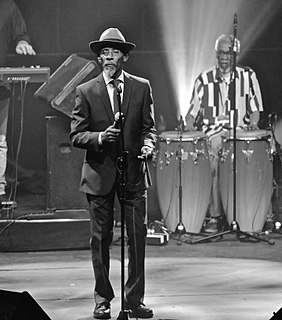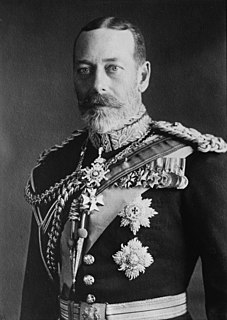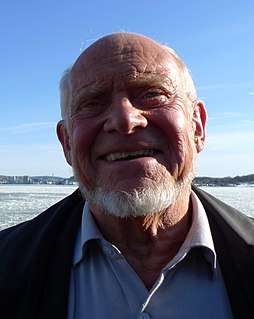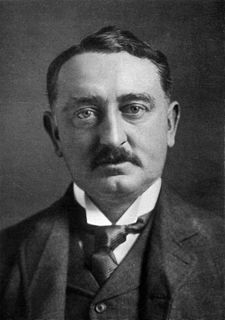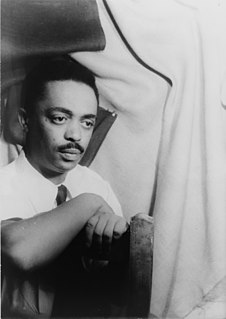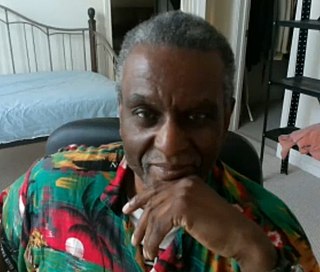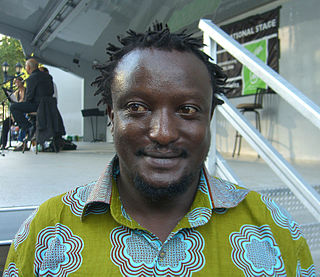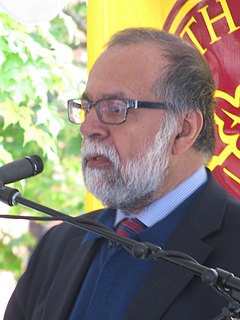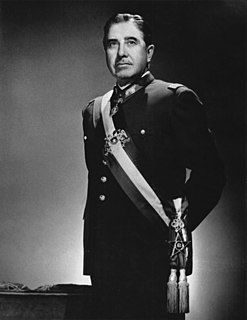Top 286 Colonial Quotes & Sayings - Page 4
Explore popular Colonial quotes.
Last updated on April 21, 2025.
The peoples of Yugoslavia do not want Fascism. They do not want a totalitarian regime, they do not want to become slaves of the German and Italian financial oligarchy as they never wanted to become reconciled to the semi-colonial dependence imposed on them by the so-called Western democracies after the first imperialist war.
I went to England in the '70s, and I was in my early 20s. There was still a residue of that era of being an underclass or colonial. I assume it must have been a more aggressive and prominent attitude 40 years before that, because Australia internationally wasn't regarded as having much cultural value. We were a country full of sheep and convicts.
The Whites have carried to these (colonial) people the worst that they could carry: the plagues of the world: materialism, fanaticism, alcoholism, and syphilis. Moreover, since what these people possessed on their own was superior to anything we could give them, they have remained themselves... The sole result of the activity of the colonizers is: they have everywhere aroused hatred.
Having therefore no foreign establishments, either colonial or military, the ships of war of the United States, in war, will be like land birds, unable to fly far from their own shores. To provide resting places for them, where they can coal and repair, would be one of the first duties of a government proposing to itself the development of the power of the nation at sea.
The process of decolonisation in Nigeria was a very untidy one. The British, when they were leaving finally and knew exactly who they wanted to take over, they wanted pliant government, figures, structures, they wanted to continue indirectly in effect their control over much of their colonial possessions and this was one of the very early causes of conflict.
The very essence of the Sufi spiritual tradition requires you to purify your heart, to liberate yourself from your ego and to be courageous in facing any corrupt power, injustice and oppression. Unfortunately, colonial powers pushed an agenda by using Sufism against resistance, and some ulama played that game in the past and in the present.
America is supposed to pride itself on freedom of religion, race, and class. It's something that is carried on from ignorance and territorialism. I don't know if it's a transcendental pre-colonial mentality but I don't see too many other races of people trippin' about who is coming in and coming out. I think it's primarily racism disguised as class wars.
Our country has caused tremendous damage and pain to the peoples of many countries, especially Asian countries, through colonial rule and invasion. Humbly acknowledging such facts of history, I once again reflect most deeply and offer apologies from my heart as well as express my condolences to all the victims of the last major war both in and out of the country,.
That the language of the poetry of Jamaican music is rastafarian or biblical language cannot simply be put down to the colonizer and his satanic missionaries. The fact is that the historical experience of the black Jamaican is an experience of the most acute human suffering, desolation and despair in the cruel world that is the colonial world.
I am an abolitionist. What does this mean? Abolitionist resistance and resilience draws from a legacy of black-led anti-colonial struggle in the United States and throughout the Americas, including places like Haiti, the first black republic founded on the principles of anti-colonialism and black liberation.
We thought everybody knew by now that barrel length has almost nothing to do with accuracy. I believe the myth of the superior accuracy of a long rifle dates from colonial days, when the only way to extend sight radius was to make the barrel as long as possible. It is interesting how long it takes a myth to die.
I'll probably take the prize for the most irrelevant degree. Although some of the things now where they study, you know: "post feministic colonial film theory" - those kind of majors, yeah, that's probably worse. But I was, you know, classics, Greek and Latin, like what's more irrelevant than dead languages, you know?
In the same way that we today think that the slave trade and colonial exploitation were inhuman and inconceivably bestial ways of acquiring riches, there is no doubt that coming generations will think that our form of world trade and distribution of the world's benefits were just as inconceivable and inhuman.
My grandmother lived under Japanese colonial rule until she was nine. Korea, still united and whole, was colonized in 1910. During this period of forced occupation, Japanese teachers taught Korean students how to view the world through their imperialist language, their history, their foreign tongue.
The one good thing to be said about announcing yourself as a writer in the colonial Canadian fifties is that nobody told me I couldn't do it because I was a girl. They simply found the entire proposition ridiculous. Writers were dead and English, or else extremely elderly and American; they were not sixteen years old and Canadian.
African cinema doesn't have an African industry at all and that's where our problem arises. We come to all of these initiatives with a lot of suspicion because we're so inhabited by the notion of being colonized, the post-colonial thought that someone wants us to do something that is their interest and not ours and even it's not true, there's the suspicion of it like where is this going?
I'm the blackest member of my family. You know, these mixed families produce children of all colors, and in Jamaica, the question of exactly what shade you were, in colonial Jamaica, that was the most important question. Because you could read off class and education and status from that. I was aware and conscious of that from the very beginning.
The London I entered was a great bustling metropolitan city at war, an imperial power fighting to hold on to that empire. And the teeming colonial subjects of that empire did not, on the whole, want England to lose that war, but they also did not want the empire to emerge unchanged from it. This, for very many of us, was the hard dilemma.
I think the inflation prospects for the U.S. over the next five or six, seven years, are quite serious. You cannot have a bumper crop in apples without the value or the price of each apple falling. The Fed has had the largest increase in the monetary base in the history of the U.S., from colonial times to the present, times ten.
Haiti was founderd by a righteous revolution in 1804 and became the first black republic. It was the first country to break the chains of slavery, the first to force Emperor Napoleon to retreat, and the only to aid Simón Bolívar in his struggle to liberate the indigenous people and slaves of Latin America from their colonial oppressors.
Many people say that we have sufficient laws in our country, just that they are not implemented properly. I completely disagree with them. I have studied many of the laws very carefully. We are still being governed by the same colonial laws which existed in British times. They have not been changed. Many of these laws need to be changed.
As long as colonialism was allowed to reign and fester in Africa, it was going to be a source of tension, if not war, as was evidenced by World War I itself, which, among other things, featured Germany on one side of the barricades and Britain, which had come earlier to the table of colonial plunder, on the other.
'Chocolat' was a sort of statement of my own childhood, recognizing I experienced something from the end of the colonial era and the beginning of independence as I was a child that really made me aware of things I never forgot - a sort of childhood that made me different when I was a student in France.
That is simple. In the Colonies we issue our own money. It is called Colonial Scrip. We issue it in proper proportion to the demands of trade and industry to make the products pass easily from the producers to the consumers. In this manner creating for ourselves our own paper money, we control its purchasing power, and we have no interest to pay.
Naming is like putting a stamp on something and fixing it. A kind of formaldehyde sort of fixation, but it becomes dead, sitting there forever, frozen. So, I'm not a great one for these modernist, post modernist, post colonial labels. I think they serve certain purpose. You do need some kind of sign post here and there, but it can also become an end in itself.
The greatest weapon the colonial powers have used in the past against our people has always been his ability to divide and conquer. If I take my hand and slap you, it might sting you because these digits are separated. But all I have to do to put you back in your place is bring those digits together.
Harriet Washington, in 'Medical Apartheid: The Dark History of Medical Experimentation on Black Americans from Colonial Times to the Present,' documents the smallpox experiments Thomas Jefferson performed on his Monticello slaves. In fact, much of what we now think of as public health emerged from the slave system.
This is not the colonial empire that somehow he has in his hand. I’ve never felt that from him. I felt that from [George] W [Bush]. I felt that from [Bill] Clinton. I felt that from every American president, including ones I disagreed with, including [Jimmy] Carter. I don’t feel that from President Obama.
Historically, international law lent a measure of legality to the colonial system, and allowed the West to set the rules for participation as a sovereign state on a global level. It also protected the interests of foreign investment in countries of the global South even when these were exploitative, and deprived countries of the benefits of resources situated within their territories.
While [European] national cultures were concocted to distinguish one economic unit of capital from another, civilizational thinking was invented to unify these cultures against their colonial consequences. Islamic, Indian, or African civilizations were invented contrapuntally by Orientalism... in order to match, balance and thus authenticate 'Western Civilization'.
There's this long history of colonialism and the colonial gaze when applied to matters related to China. So a lot of conceptions about China in literary representations in the West are things you can't even fight against because they've been there so long that they've become part of the Western imagination of China.
Growing up in colonial Virginia, if you know anything about that part of the country, there was a number of tensions there. Because of that, you heard the family members talk about Dr. King and many others who were not just speaking out, but sacrificing a ton so that our world, our country could be a better place.
We wasted a lot of creative energy in that immediate post colonial era, when there was a struggle between, you know, the Cold War between the capitalism and communism. Many writers just wasted their energy and their talent because they want to be ideologically correct and of course all they produced was propaganda.
In the meantime, what is lost is any sense that the Palestinian resistance to Israeli colonial rule is waged from a situation of occupation or expulsion, that there is a military order that controls the boundaries of what would be a sovereign Palestinian state, that the land on which that state is now thinkable has been radically diminished by an ongoing practice of land confiscation and appropriation.
And it is clear that in the colonial countries the peasants alone are revolutionary, for they have nothing to lose and everything to gain. The starving peasant, outside the class system is the first among the exploited to discover that only violence pays. For him there is no compromise, no possible coming to terms; colonization and decolonization a simply a question of relative strength.
The freedoms which had been so hard won from colonial domination were being crushed by Soviet-inspired and funded military and political forces. Their clear intention was to deprive the people of their democratic freedoms. As history shows, this is what had happened in the Soviet Union and in Cuba, and continues to be the case in other parts of the world.
You have to look at what the United Nations Declaration of Rights of Indigenous people says which is free and prior informed consent. Now, if you say 'we're going to build a pipeline, what does it take for us as the colonial power of Canada to make you agree?' That's not free, prior and informed consent, that's coercion.

